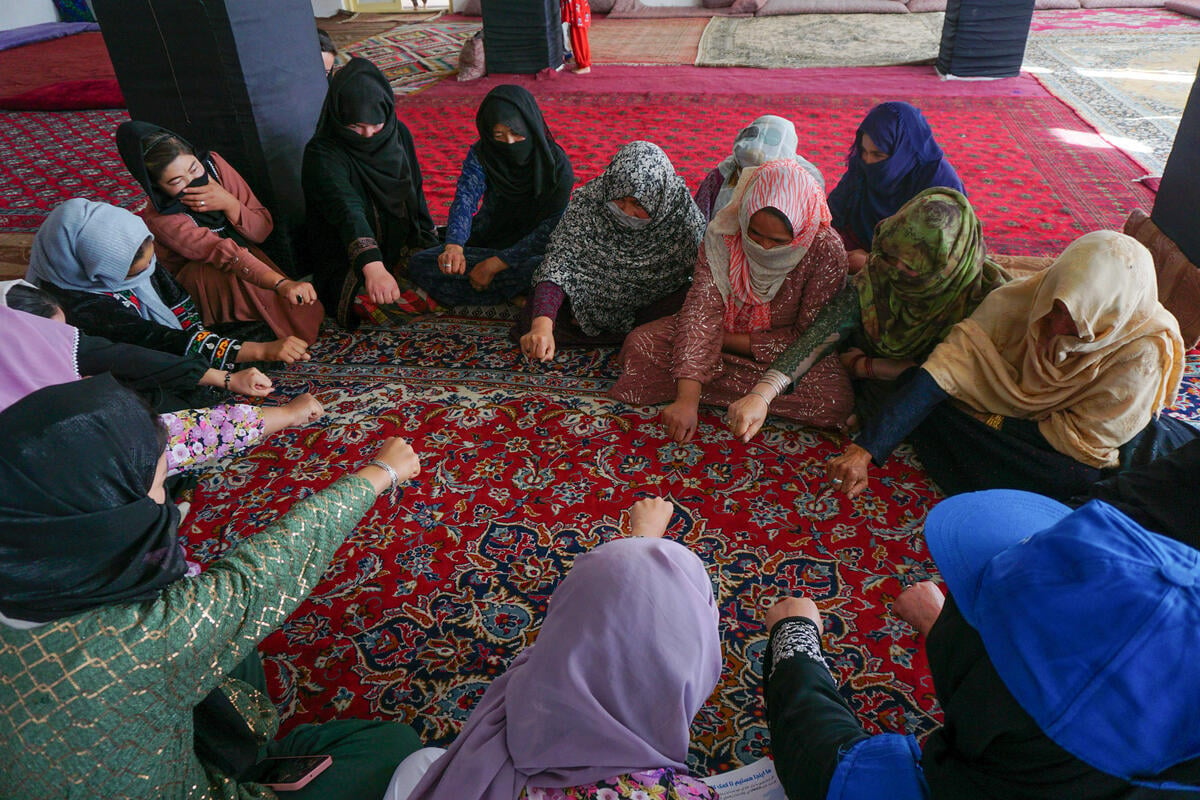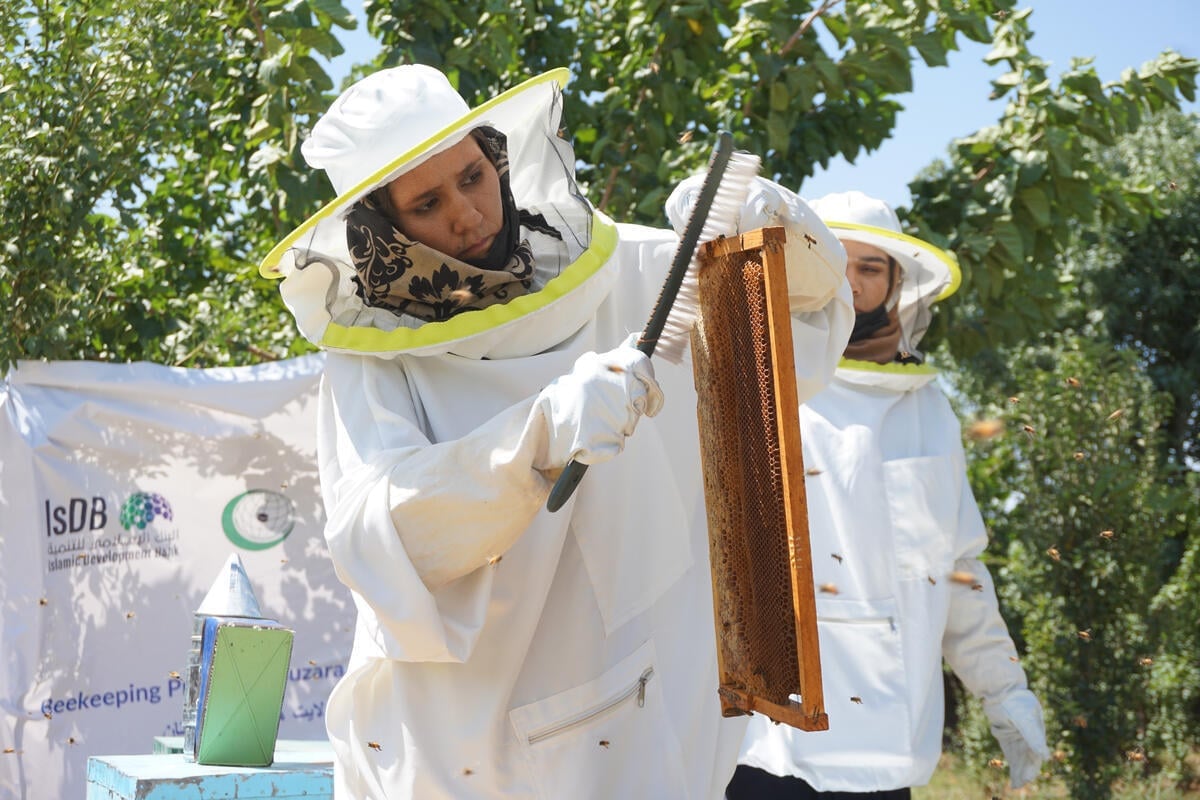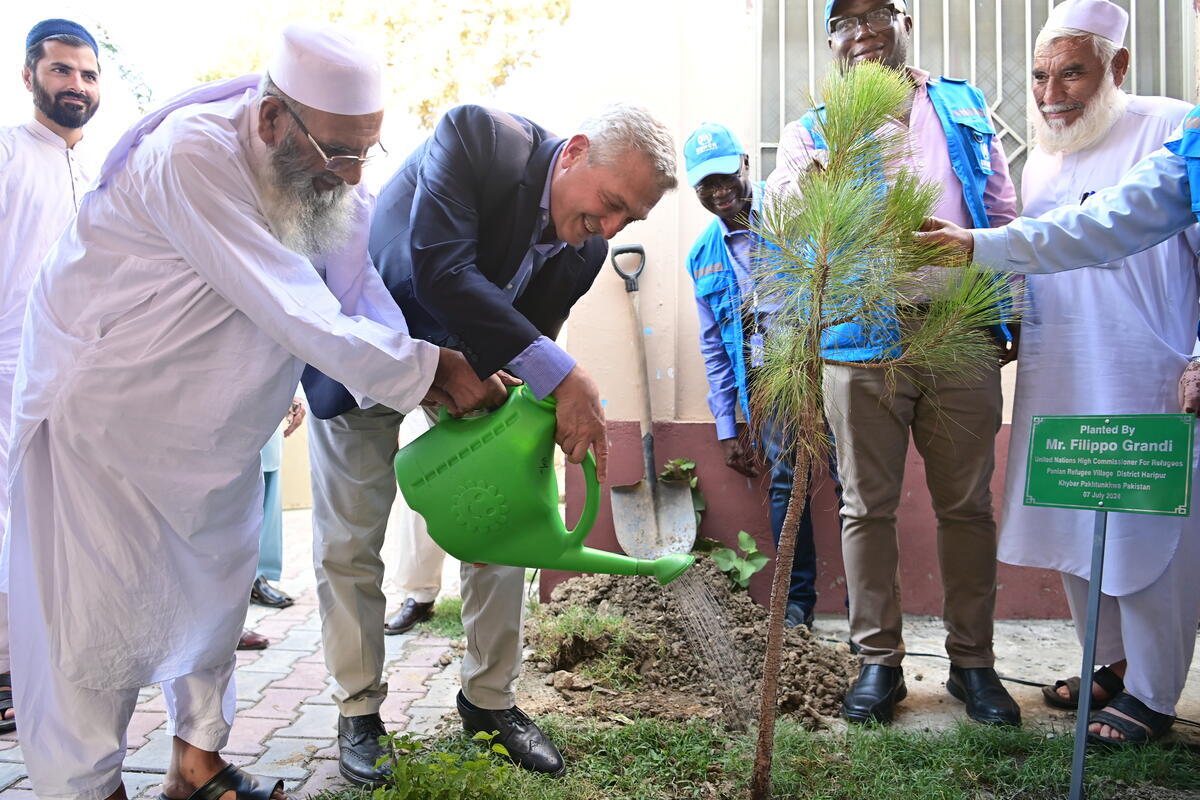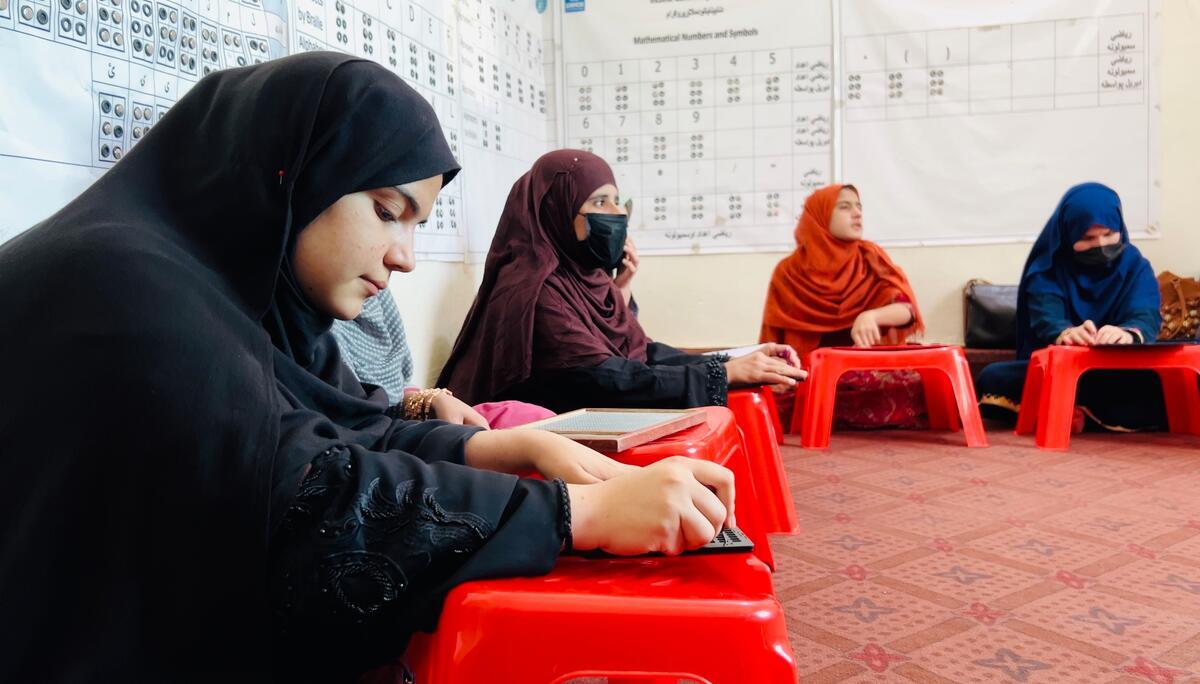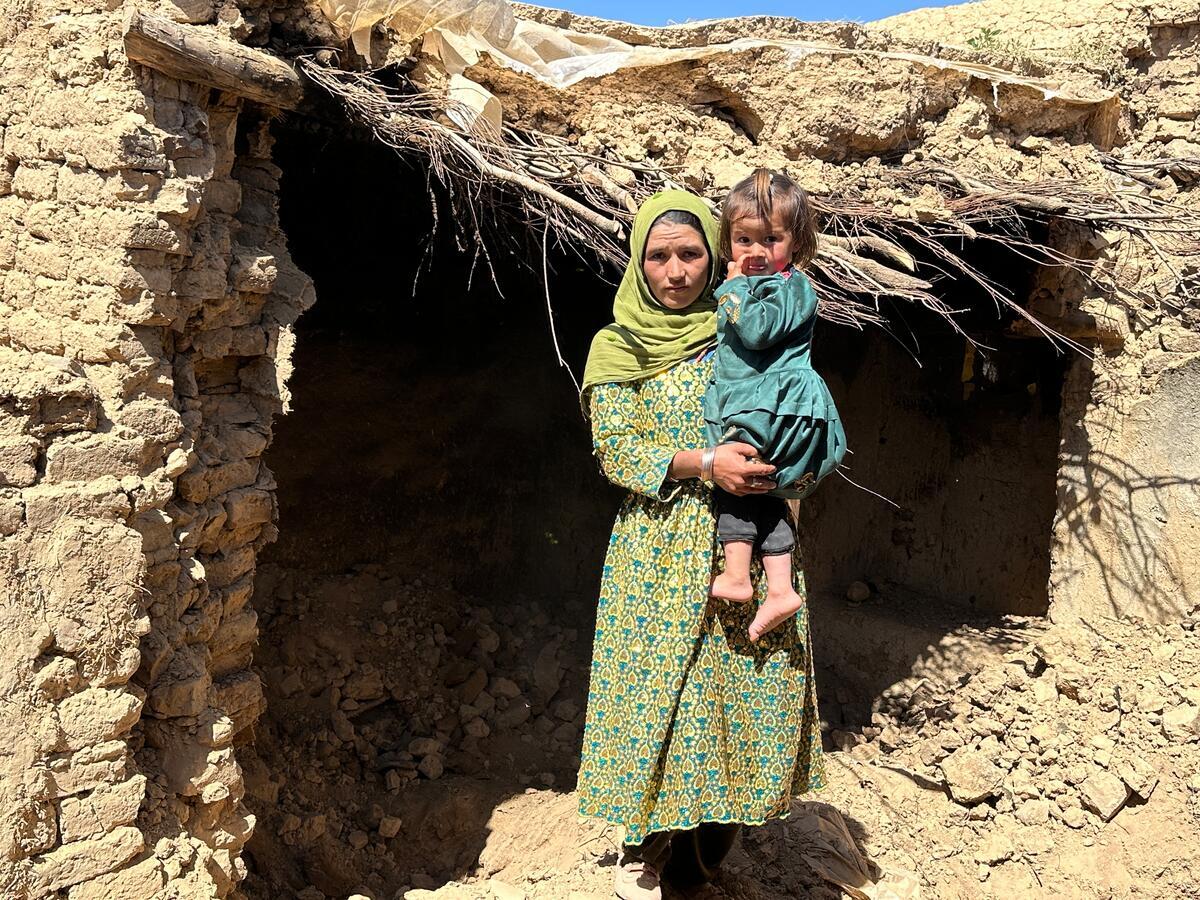Afghanistan Humanitarian Update No. 37
Afghanistan Humanitarian Update No. 37
At a Glance:
- 382 Refugees leave squalid Jalozai camp
- Roghani camp tops 4,000; thousands wait at border site
- Nearly 12,000 return from Iran since November 1
- New arrivals reported at Mile 46 camp inside Afghanistan
- Another aid shipment into northern Afghanistan
382 Refugees leave squalid Jalozai camp
Nearly 400 Afghan refugees on Monday left the squalor of the Jalozai camp outside Peshawar for a new UNHCR site at Kotkai, 120 kms away. Families with numerous children flocked to the departure point near Jalozai early Monday morning, accompanied by an equally large number of friends and relatives who came to see them off. Most walked to the departure point, carrying bundles of clothing on their backs. The more affluent arrived in donkey-drawn carts, operated by local entrepreneurs.
Many of those leaving seemed to be in good spirits, although some said they were nervous. A fierce argument broke out between a man who changed his mind and wanted to stay and his wife who was happy to go. As seven rickety buses accompanied by two white UNHCR vehicles and an ambulance pulled slowly out of the registration compound, children peered curiously through the windows and waved at those staying behind. The move is the first in series of transfers to Kotkai planned for the coming days.
UNHCR workers on the scene were shocked at how little luggage was carried by those departing. "It is quite clear that they have nothing," said the UNHCR official who oversaw the operation. A large truck hired by UNHCR to carry the refugees' belongings remained empty.
The refugees arrived later Monday at Kotkai camp, a five-hour journey from Jalozai. The new UNHCR site at Kotkai is equipped with tents, sanitary facilities and a supply of clean water. It also has a proper aid distribution system and space for up to 20,000 people.
On Sunday, more than 600 people had signed up to go to Kotkai, but only 382 showed up for transfer Monday morning. This indicates many residents of Jalozai are still having problems deciding whether to move away from the proximity of a large city to an isolated tribal area.
The planned move follows an agreement reached on Saturday with provincial authorities in Pakistan's North-West Frontier Province. In a departure from their previous position, the authorities also agreed for UNHCR to supply aid to the "unofficial" part of Jalozai camp to help non-Pashtun Afghans who are reluctant to move to Kotkai, which is situated in a Pashtun tribal area. Those transferred on Monday were all ethnic Pashtuns.
Roghani camp tops 4,000; thousands wait at border site
The relocation of Afghans from Killi Faizo temporary staging site near Pakistan's Chaman border to the Roghani refugee camp continued on Sunday. Two convoys ferried 47 families (208 individuals) to Roghani, bringing the total population to 888 families (4,152 individuals).
Another 269 new families (1,163 persons) who crossed into Pakistan were registered at Killi Faizo. Eighteen other families who arrived late were provided with overnight accommodation at Killi Faizo pending their registration today. In all, 654 families (3,119 individuals) remain in Killi Faizo awaiting transfer to Roghani camp.
Nearly 12,000 return from Iran since November 1
A total of 965 Afghans returned to their homeland from Iran on Monday, bringing to nearly 12,000 the number who have gone back since November 1 in daily spontaneous movements from various towns throughout Iran. Given the increasing number of returns, the total for November is expected to exceed October's returns of just over 15,000 people. The Afghans travel via Dogharoun, Iran's main border crossing in the Northeast, where they are registered before leaving the country.
UNHCR staff in Dogharoun report a more relaxed atmosphere among the Afghans going home. The staff say that many of the predominantly young male returnees have shaved off their beards. Some are now taking home with them radio cassette players which they listen to as they wait for border formalities to be completed. Previously, the Taliban carried out body searches on returnees at Islam Qala, the Afghan town right across from Dogharoun, looking for music cassettes and other banned items. At the same time, returnee men with no beards previously had been compelled to sign an undertaking that they would grow their beards within three months.
Staff at Dogharoun who interview a random selection of returnees to ascertain that their return is voluntary, report that some of the men are now in jeans instead of the long shirt and loose trousers commonly worn in Afghanistan. Women are also arriving at the border dressed in the Chador - the Iranian long coat and head-dress worn by women - and are no longer making efforts to change into the Burka - the all-covering attire worn until recently by women inside Afghanistan. Many women are still accompanied by male relatives.
Despite the continued closure of the Afghan border to commercial traffic, returnees have had unhindered access through the frontier. Every morning, queues of waiting buses and trucks at Islam Qala await the returnees who make the crossing from Dogharoun to Islam Qala on foot. Some use handcarts to bring their luggage across the no-man's land from Iran to Afghanistan.
New arrivals at Mile 46 camp inside Afghanistan
In Sistan Baluchistan, Afghanistan, NGO staff working in Mile 46, one of the two camps set up by Iranian authorities to house displaced Afghans inside Afghanistan, reported the arrival this morning of one truck carrying up to 30 people said to be coming from Kandahar. The new arrivals said that more truckloads of people were on the way.
Another UNHCR aid shipment into northern Afghanistan
Another UNHCR delivery of aid into northern Afghanistan from Termez, Uzbekistan, took place on Sunday. A barge crossed the river between Uzbekistan and Afghanistan carrying UNHCR relief items (1,000 blankets, 500 jerry cans, 500 mattresses, 500 kitchen sets, 500 cooking stoves, 500 buckets, 500 pieces of plastic sheeting and laundry soap) and food from the World Food Programme. The shipment is intended for internally displaced people in a camp in Baghlan province, Afghanistan.
Meanwhile, UNHCR continues sending aid from Peshawar, Pakistan, to Termez for use inside Afghanistan. The fifth Peshawar-Termez flight arrived Monday with 660 tents. A sixth UNHCR flight is scheduled to arrive tomorrow (Tuesday), followed by another on Wednesday.


